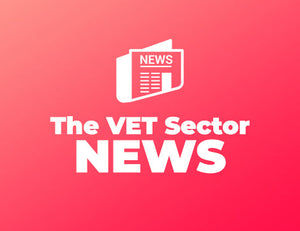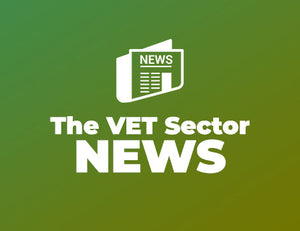
Training Package reform: Changing the Units of Competency and other documents
SUKH SANDHUThe Australian vocational education and training (VET) sector is currently undergoing significant reform, including changes to the Training Packages that are used to guide the development and delivery of training programs. These changes are aimed at ensuring that the VET sector is better able to meet the needs of employers and industry and provide students with the skills and knowledge they need to succeed in the workforce, and also assist with skill shortage issues.
One of the key changes that is taking place as part of the Training Package reform is the update of Units of Competency (UoCs). UoCs are the building blocks of Training Packages and describe the knowledge, skills and attributes required to perform a particular job function or task. The review and update of UoCs will ensure that they are clearer, more accessible, more flexible and navigable, more transferable, current, relevant, and meet the needs of the industry and employers.
Government representatives believe it has become increasingly difficult to navigate the VET system currently in place, with more than 1200 qualifications, 1500 skill sets, and 15,000 units of content to choose from. Adding that highly prescriptive content stifles innovation and training delivery and hinders the recognition of transferable skills and learner mobility.
Another important aspect of the Training Package reform is the update of other documents associated with Training Packages. These documents provide important information about the structure and content of training programs, as well as the assessment methods that should be used to evaluate student performance. Updating these documents will ensure that they are in line with the updated UoCs and provide clear guidance for training providers.
The Training Package reform is also introducing new structures and names for the different documents being used and better integration of Micro-Credentials, to meet the specific skill needs of industry and employers.
Skill standards will replace UoCs, and they will be developed by Jobs and Skills Councils. A government statement specifies that these councils, which were previously known as Industry Clusters, are designed to “provide industry with a stronger, more strategic voice in order to ensure Australia's VET sector delivers stronger outcomes for learners and employers," as it continued.
Over the next four years, the federal government has earmarked $402 million for the establishment of the Jobs and Skills Councils (JSCs).
To lead the establishment of the Jobs and Skills Councils, the following organisations have been selected:
Finance, Technology, and Business: Digital Skills Organisation – $746,680
Mining and Automotive: Australian Minerals and Energy Skills Alliance – $698,500
Transport and Logistics: Australian Industry Standards – $418,000
Agribusiness: Skills Impact – $384,091
Manufacturing: Innovation and Business Skills Australia – $748,000
Arts, Personal Services, Retail, Tourism, and Hospitality: Australian Retailers Association
Energy, Gas, and Renewables: Energy, Renewables, and Emerging Technologies Industry Skills Cluster
Public Safety and Government: Public Safety Industry Committee
Building, Construction, and Property: Build Skills Australia
Health and human services, early education and sport and recreation sectors – The Australian Healthcare and Hospitals Association (AHHA)
The Skills Standards will be developed based on the skills and knowledge required to perform a job function in the workplace. They will be industry-sector agnostic to reduce specificity, supporting the mobility of skills across multiple industries and job roles. They will include clear and consistent information, including a clear description of foundation skills.
Training organisations in Australia need to be aware of these changes and be prepared to adapt their training programs accordingly. This may involve reviewing and updating the training materials and resources, as well as the assessment methods used, to ensure that they align with the updated UoCs and other Training Package documents. Training organisations should also keep an eye out for new training products and consider how they can be incorporated into their training programs.
In conclusion, the Training Package reform is an important initiative that will help to ensure that the VET sector in Australia is better able to meet the needs of employers and industry and to provide students with the skills and knowledge they need to succeed in the workforce. Training organisations in Australia should be aware of the changes and be prepared to adapt their training programs accordingly. This will help them to remain competitive and provide quality training that meets the needs of students and the industry.
For more information, please visit
Skill standards and VET qualifications https://www.aigroup.com.au/news/webinars/2022/skills-standards-and-vet-qualifications/
Training packages https://www.dewr.gov.au/training-packages
RECENT POSTS





